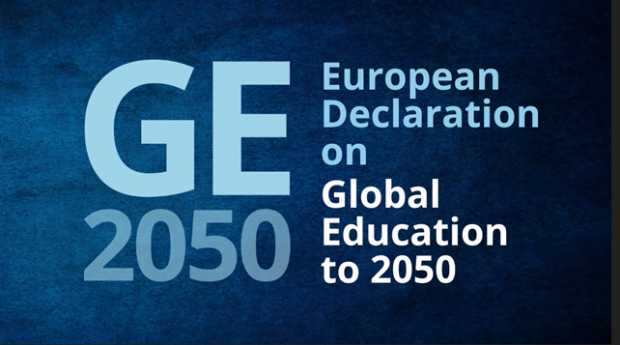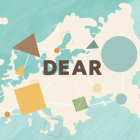The “Dublin” Declaration on Global Education to 2050
News details

Twenty years after the 2002 Maastricht Declaration on Global Education, institutions from all over Europe signed the Dublin Declaration – The European Declaration on Global Education to 2050. By so doing, they affirmed their commitment to further advancing Global Education as a means to achieving a world of greater social and climate justice, peace, and solidarity.
At Dublin Castle, over 300 participants, including ministers of Education, Foreign Affairs and Development Cooperation, youth organisations, civil society, local and regional governments, scholars, international organisations were convened by the Global Education Network Europe (GENE) and hosted by the Government of Ireland, with Luxembourg as co-chair, in order to adopt the Dublin Declaration.
The Irish Minister for Overseas Development Aid and Diaspora, Mr. Colm Brophy explained the strategic intention of the declaration: “The Dublin Declaration […] sets out how Governments will work with youth representatives, civil society, business and academia to build a coalition for change. Our aim is to mobilise the public at an individual and collective level to think about how they can contribute to sustainability and global justice.”
The belief in the transformative power of global education was echoed by the EU Commissioner for International Partnerships, Mrs. Jutta Urpilainen: “Navigating and solving global challenges - war, climate crises, and global inequalities - starts with Education…. Education is the smartest, most powerful investment for the future.” She also highlighted the EU’s #YouthActionPlan and commitment to engaging young people, noting that “today the world is home to the largest generation of young people in history.” Watch INTPA’s Commissioner’s statement on Twitter.
The Dublin Declaration takes a long-term view to 2050 to forge a common vision and commitments that include, and go beyond, the remaining time for achieving the SDGs. It is grounded on:
-
Partnerships between key actors at national, European and global levels
-
Curriculum reform and whole school approaches
-
The role of educators
-
The need for adequate funding levels and suitable funding mechanisms
-
An appreciation for the leadership role played by civil society and young people in driving change
-
The continued desire to cooperate for policy coherence and integration of global learning in all education.
The Dublin Declaration emphasises terms like Education for Sustainable Development and Global Citizenship Education, and includes other terms in use at national, European and global level. It also redefines the term Global Education:
“Global Education is education that enables people to reflect critically on the world and their place in it; to open their eyes, hearts and minds to the reality of the world at local and global level.
It empowers people to understand, imagine, hope and act to bring about a world of social and climate justice, peace, solidarity, equity and equality, planetary sustainability, and international understanding.
It involves respect for human rights and diversity, inclusion, and a decent life for all, now and into the future. Global Education encompasses a broad range of educational provision: formal, non-formal and informal; life-long and life-wide.”
GENE representatives and participants highlighted the focus on policy coherence and the inter- ministerial dialogue as well as engagement with “global critical friends”- peers and colleagues from around the world. Government representatives also described how they would commit to the content of the Declaration. Many delegates shared their perspective of the role of Global Education in their national and regional contexts as well as the importance of building public understanding of global justice. Listen to their voices here.
Getting to Dublin - the Process
The process to create this Declaration was launched in June 2021 – on the 20th Anniversary of the foundation of GENE. GENE brought together many actors that use different concepts and approaches in their work; the process of creating the new Declaration on GE to 2050 bridged different constituencies and actors, including Member States, the European Youth Forum, Concord and PLATFORMA, thought leaders and international organisations: the European Commission, UNECE, UNESCO, the OECD and the Council of Europe, facilitating many rounds of consultations and iterations. These stakeholders provided much of the content of the declaration and in doing so, ensured their buy-in to the implementation of the declaration’s ambitions.
Throughout, policymakers were at the core of the process to ensure that the declaration would be directly linked to national policy contexts. Ireland and Luxembourg acted as co-chairs to the drafting committee of ministry representatives, which also comprised Austria, Belgium, Czechia, Finland and France, along with the GENE Board, represented by Germany. The committee worked closely with the European Presidency holders (France and the Czech Republic during 2022) to ensure coherence with EU policy in this field – and to build on recent related Council Conclusions.
What is next?
Now begins the next phase. Over the coming few years, GENE will continue to work with member countries to support their efforts at national level and to connect them at European level to realise the vision of the Declaration.
GENE offers policy learning opportunities, a peer review mechanism, technical advice and support on matters such as developing national strategies and funding mechanisms, monitoring and evaluation, curriculum integration, teacher education and focused research – all in the pursuit of more and better global education policy, strategy, funding, coordination and practice – core tenets of the Declaration on Global Education to 2050. GENE will also regularly bring information from European countries together to report on progress through its publications and events.
While GENE’s work focuses on supporting policymakers, GENE will continue to maintain a dialogue with other actors and stakeholders in Global Education to enable interaction and exchange around achieving access to quality global learning for all people in Europe – in solidarity with peoples globally. We know that uniting our efforts across sectors, themes and actors is the only way to approach target 4.7 and to realise the vision of the European Declaration on Global Education to 2050.
About the Global Education Network Europe (GENE)
GENE is the European network of Ministries and Agencies with national responsibility for Global Education in European countries. GENE brings together over 50 Ministries and Agencies, along with the European Commission, to share policy learning and increase and improve Global Education policy and provision throughout Europe. GENE works towards the day when all people in Europe – in solidarity with peoples globally – will have access to quality Global Education. www.gene.eu
Read the five page Dublin Declaration here, as well as many participant testimonies on the GENE website. #GE2050

Log in with your EU Login account to post or comment on the platform.